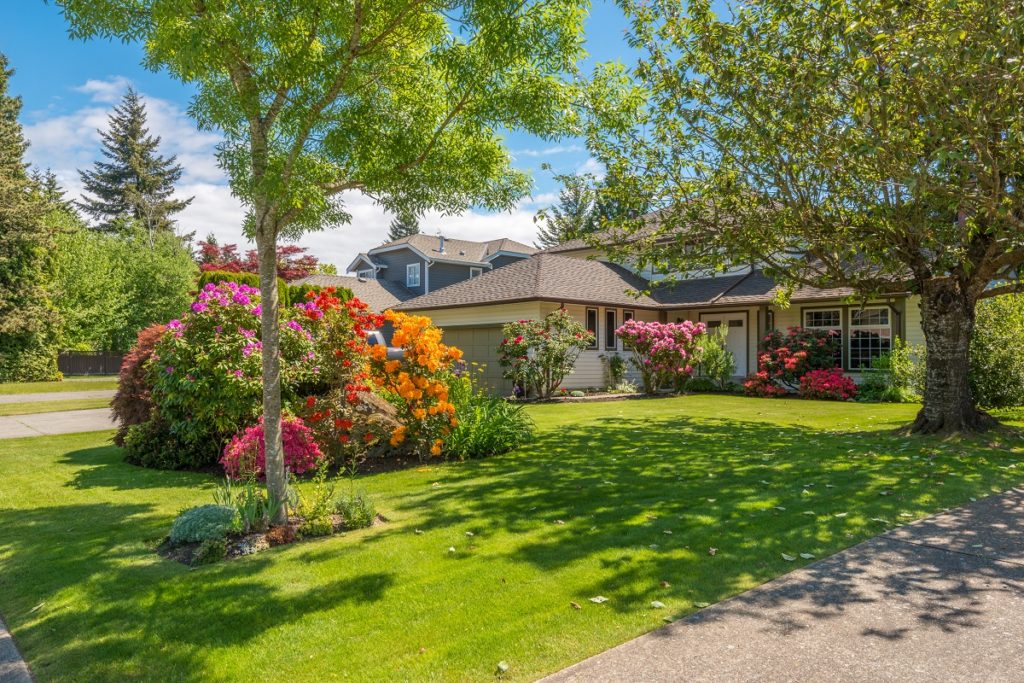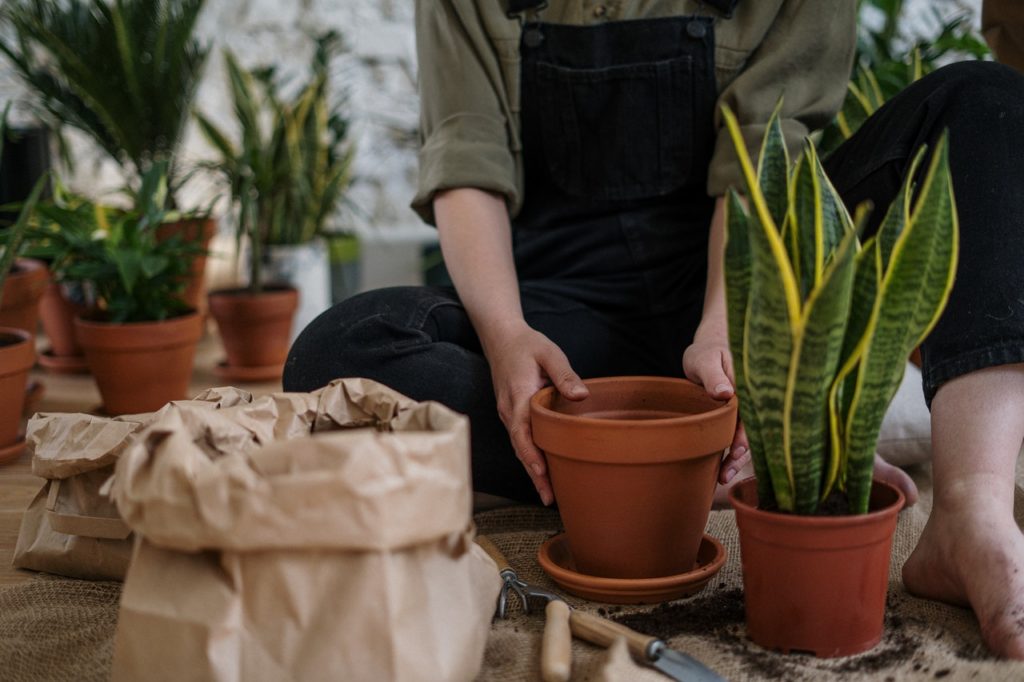When we talk about sustainable homes, we focus on using materials that contribute to environmental sustainability. We highlight the building materials we used, as well as the decorating choices and the use of smart systems such as smart home devices, automated thermostats, and motion-sensor lights. Rarely do we even think about making gardens and lawns the focal point of the sustainability of a home. In fact, the lawn you barely notice is the core of a sustainable home.
A sustainable home garden is all about giving back to nature. It’s about using almost zero chemicals to grow plants, trees, and vegetation. The aim of a garden or lawn like this is not to waste any of the natural resources available to modern society. It conserves energy, water, and does not contribute to the degradation of the environment in exchange for a pretty lawn that improves your home’s curb appeal.
Conserving Water
How can you save water on your lawn? First, you need to know the properties of your soil. Is it dry? If it is dry, you need to add organic matter such as well-rotted manure or garden compost. This will improve the structure of your soil. It will also help retain moisture, which will reduce the need for you to water the garden regularly. You can also learn about the best time to water, as well as how much water your plants need.
Another trick is to grow flowers and plants that need less water. Succulents are excellent and low-maintenance non-water-loving plants. They are drought-resistant, which makes them perfect for low-water gardens.
To save and conserve water, you have to use watering techniques. One of the best ways to reuse rainwater is by installing trench grates for driveways. The drain underneath the trench grate can divert rainwater to your garden’s irrigation system. You have to filter the rainwater to make sure it contains no toxic or contaminants that might be harmful to your plants. Likewise, you have to take into account hot and dry weather when you program your irrigation system.

Vegetation
The easiest way to make your garden sustainable is to use it to grow vegetation and herbs. Imagine not having to buy your vegetables from the markers and grocery stores. Not only are you going to save an insane amount of money, but you are also reducing the need for these stores to get supplies from another state or city. That will reduce the carbon emissions brought about by transporting goods from the farms to the grocery stores.
But when you garden, make sure that you are using organic methods. You have to use fewer chemicals and adopt a greener way to grow your vegetables and herbs. There are various resources on the internet about organic gardening, though the most popular method is to make your own compost.
Fresh herbs spoil easily in the refrigerator. With a herb garden in your backyard, you never have to worry about running to the store for dill, rosemary, thyme, and mint. You can grow these all-year-round, or move them to a safer place during winter. A herb garden is easily one of the most sustainable types of gardening that you can do.
Energy
A sustainable garden can lessen your dependence on the grid. Growing tall plants and trees that shade your house from the harsh rays of the sun during summer will reduce your need to turn on the air-conditioning unit. The same thing happens during winter. The trees can provide a kind of barrier against the strong cold winds that usually seep through the gaps in your doors and windows. Of course, you have to make sure there’s no snowstorm coming since the trees might fall on top of your roof.
Even without those tall trees in the summer, having a nice garden will make you want to spend time outdoors. You can build a gazebo or extend your porch so you can feel the warm breeze instead of turning on your AC. Imagine how much you can save on your electricity bill if you are less reliant on the heating and cooling devices inside your home.
If you are planning to make your property more sustainable and less dependent on burning fossil fuels, look no farther than your garden. This is where you should start healthy and sustainable practices for your home. Gardening is also the easiest way to become more environmentally conscious about carbon dioxide emissions, depletion of natural resources, and climate change. Once you begin taking care of your garden, it becomes easier to come up with sustainable solutions for your home.


